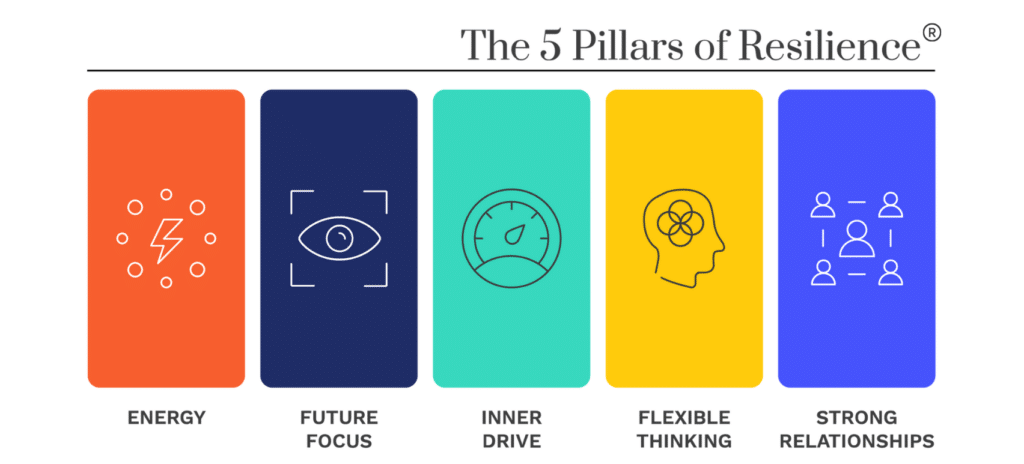13 January 2025
Resilient HR: Enabling Healthy Performance
With 81% of HR leaders reporting burnout, it’s clear the function has reached a critical point. HR isn’t just about enabling others—it’s about safeguarding their own wellbeing, too. In this article, we explore how HR teams can thrive amid change and high demands.
In today’s fast-moving, economically uncertain world, HR are grappling with a growing list of challenges – from implementing hybrid working models to addressing job insecurity in a low-growth economy. With 81% of HR leaders reporting burnout, it’s clear that the function has reached a critical tipping point.
HR remains a critical intersection of people, culture and organisational strategy. So, their resilience emerges as a strategic priority. We must ensure HR teams can support their own wellbeing and are equipped to support the wider workforce.
Key Challenges Facing HR Professionals
Rapid change, economic uncertainty and the sheer breadth of responsibilities can leave even the most seasoned professionals feeling overstretched. Below, we explore the core challenges shaping the modern HR landscape.
1. Relentless Pace of Change
Ongoing shifts in market conditions, regulations and technology create a continually evolving landscape, demanding near-constant adaptation.
2. Varied Responsibilities
Today, HR encompasses everything from employee wellbeing and talent management to DEI initiatives and culture-building. The sheer breadth of tasks can leave teams feeling overstretched and undervalued.
3. Economic Uncertainty
Fluctuating budgets and headcount pressures force HR teams to make difficult decisions about roles, sometimes with limited support. Meanwhile, job insecurity ramps up employee concerns, further escalating workload.
4. Wellbeing on the Line
Constantly supporting others can lead to compassion fatigue, especially when there’s no dedicated support system for HR professionals.
This is exactly where Mental Health First Aider training becomes valuable, click here to learn more.
5. Perceived Value
Despite their strategic importance, many HR teams still feel undervalued. In fact, 63% of c-suite leaders consider HR an administrative function, rather than a strategic driver of organisational success (Sage 2024).
Given these mounting pressures, a clear framework is needed to address them head-on. This is where the 5 Pillars of Resilience model comes in—offering HR teams a structured way to safeguard their wellbeing and maintain healthy performance.
The 5 Pillars of Resilience for HR Teams
The 5 Pillars of Resilience is a scientifically validated model that helps HR professionals:
- Identify the core elements that influence their physical, mental, and emotional health.
- Take proactive steps to strengthen their resilience on a daily basis.
- Sustain high performance without compromising their own wellbeing.

Below is a brief overview of each pillar:
ENERGY
What it entails: Prioritising physical and mental energy through regular movement, adequate sleep, balanced nutrition, and healthy boundaries.
Why it matters: Maintaining steady energy levels is the foundation of healthy productivity, ensuring HR teams you can manage an every-growing to-do list, without burning out.
FUTURE FOCUS
What it entails: Setting a clear sense of purpose and direction, even in the face of economic or organisational upheaval.
Why it matters: A forward-looking mindset ensures HR teams stay proactive. By anticipating emerging challenges and aligning with long-term goals, they can guide workforce initiatives with greater clarity.
INNER DRIVE
What it entails: Cultivating self-belief, motivation and perseverance in the face of obstacles.
Why it matters: HR teams often manage complex tasks and tight deadlines. Staying motivated and confident ensures they can continue to deliver, even when pressures mount.
FLEXIBLE THINKING
What it entails: Remaining adaptable, open-minded and creative when solving problems.
Why it matters: With hybrid working, shifting regulations and diverse employee needs, flexible thinking is essential for timely, effective solutions.
STRONG RELATIONSHIPS
What it entails: Building trusted networks within and outside the organisation—fostering open dialogue and mutual support.
Why it matters: HR teams often shoulder the emotional load for the entire workforce, acting as the organisational glue that holds teams together. Strong, trust-based relationships ensure that while HR support others, they too receive the necessary support.
Next Steps: How to Strengthen HR Resilience
Building a resilient HR team requires a range of proactive strategies. Below are practical steps HR leaders can implement for their team.
1. Run an HR-focused Wellbeing and Resilience Check
The Wraw psychometric gives individuals and teams a clear understanding of their current resilience across The 5 Pillars of Resilience. It provides a clear foundation for targeted, personalised development.
2. Invest in Targeted Training
Contrary to popular belief, resilience isn’t a fixed trait—it can be developed with the right support and practice. By combining resilience-building with targeted skill development (e.g., holding wellbeing conversations, managing difficult discussions), HR teams will be well placed to support employees and protect their own wellbeing.
3. Implement Quick Wins
Energy: Encourage micro-breaks and short mindfulness sessions to boost energy throughout the day.
Future Focus: Encourage continuous learning through access to online courses, webinars and workshops focused on future HR trends and skills.
Inner Drive: Acknowledge and celebrate small achievements within the team through shout-outs in meetings or internal communications.
Flexible Thinking: Introduce brainstorming catchups to collaboratively problem solve.
Strong Relationships: Implement peer mentoring or buddy systems to provide additional support.
Final Thoughts
Studies show that 21% of HR leaders rank employee health and wellbeing as a top priority (Sage, 2024). But this commitment must include the people function itself—ensuring that those responsible for everyone else’s wellbeing have the support and skills they need. By focusing on the 5 Pillars of Resilience, HR teams can set the example for the entire organisation, showcasing how to navigate unrelenting change without sacrificing their own health and happiness.

Author Bio: Sandra Ordel is a Senior Business Psychologist specialising in workforce resilience and neuropsychology. She supports organisations worldwide to build resilient teams and cultures of healthy performance.









